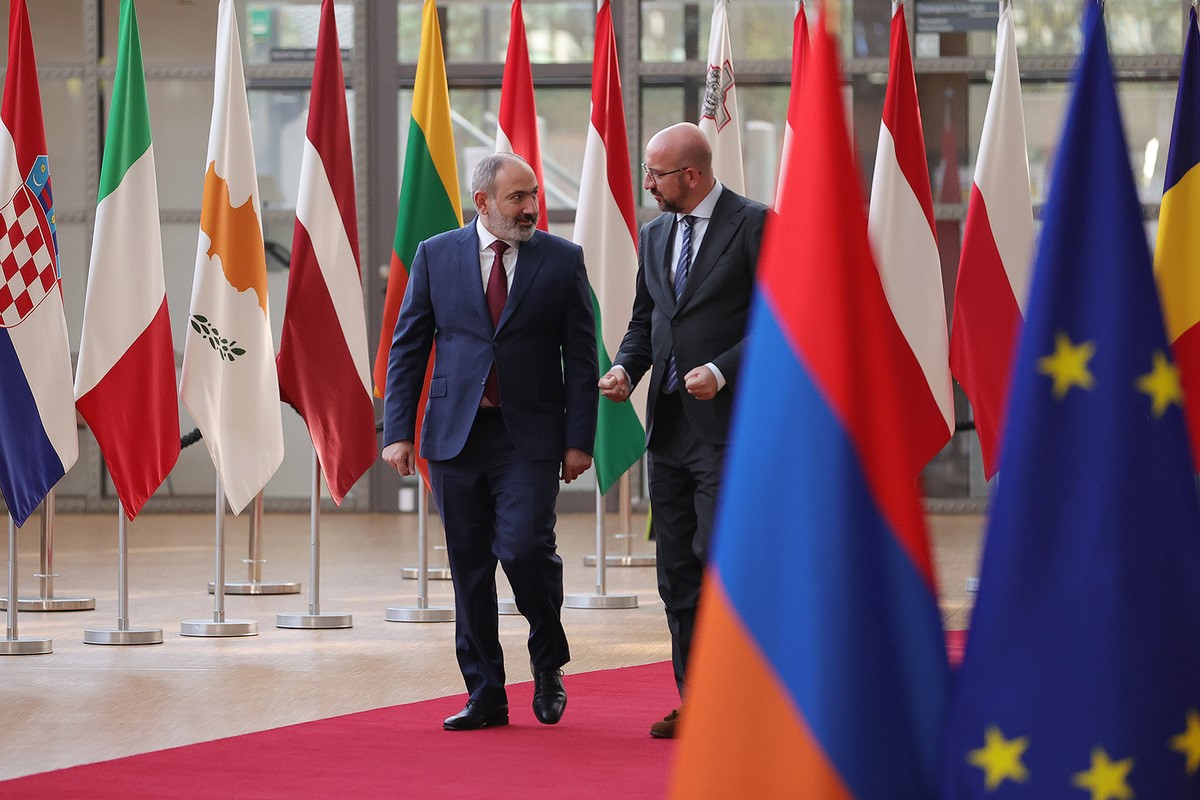
The statements of international figures were the center of attention in the media field of Armenia in May. First, the interview of US ambassador Lynne Tracy with Armenpress was discussed, where the ambassador reaffirmed the US position that the issue of the status of Nagorno Karabakh still remains unresolved. Then the statements of the President of the European Council, Charles Michel, became the occasion for more comprehensive analyses.
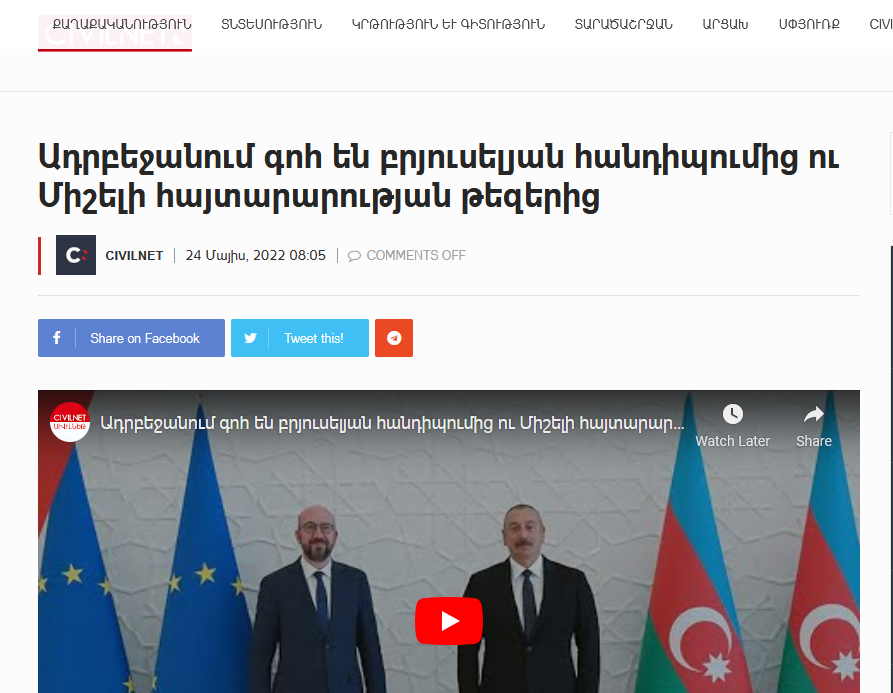
On May 23, the third meeting of the President of the European Council Charles Michel with the Prime Minister of Armenia Nikol Pashinyan and the President of Azerbaijan Ilham Aliyev took place. Only Michel announced the results after the meeting. As many points of the statement were misread, Armenian officials were forced to issue clarifications.
Michel said in particular that the first meeting of the joint commissions on the border issue will take place in the next few days. He also closed the topic of corridors, noting that the border guard service, security, land, and customs duties will be regulated by international transport laws. It should be noted that before that, various RA officials, as well as Russian Deputy Prime Minister Alexey Overchuk, had ruled out the corridor logic.
However, the statements of a European official about Nagorno Karabakh and “ensuring communication between different parts of Armenia and the territory of Azerbaijan” became a reason for uncertainty and discussion.
In particular, Michel said that he emphasized in his speech to the leaders of both countries that it is necessary to pay attention to “the rights and security of the ethnic Armenian population in Karabakh.”
The media widely disseminated the opinions and claims considering it to be a step back. ANC coordinator Levon Zurabyan expressed concern that Nagorno Karabakh was not mentioned as a political entity. “Michel’s statement is the first such international level statement, in which, in fact, Azerbaijan’s demands are met, otherwise there is no mention of the still unresolved Karabakh conflict, and the phrase ‘ethnic Armenian population in Karabakh’ is meant to emphasize the absence of Nagorno Karabakh as a territorial and political entity.”
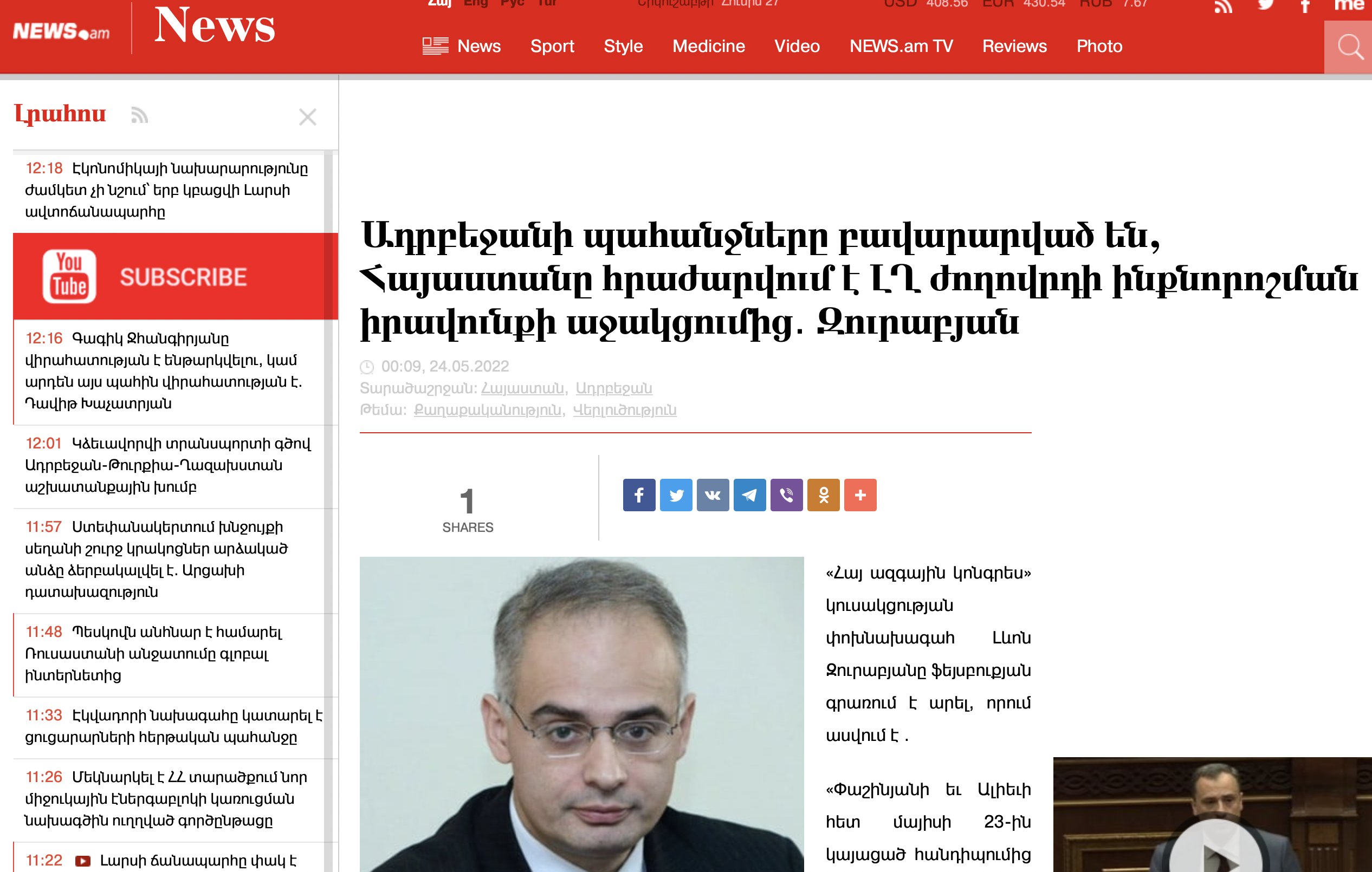
The HRD of Nagorno Karabakh complained again. He considered that because of this wording, mistrust should arise among the people of Artsakh regarding these negotiations. According to HRD, the difference is that we see the term “Nagorno Karabakh” in the discussions taking place with the mediation of the European platforms.
The discussions became so heated that Barend Leyts, Spokesperson for the European Council President issued a clarification. Leyts said that terminology is sensitive in case of conflicts. “The statement of May 22 should not be interpreted as support for any predetermined outcome of the discussions. Comprehensive addressing of all problems is extremely important: this includes the rights and safety of all populations.”
As usual, the explanation was not as widely spread in the Armenian media as the initial statement. Even when the clarification was covered, it was accompanied by commentary.
The Secretary of the Security Council, Armen Grigoryan, also clarified what Michel meant in his statement, regarding the opening of communication channels. According to Grigoryan, Armenia can use the territory of Nakhijevan because “the railway connecting the north of Armenia to the south passes through Nakhijevan.”
There were media outlets that, in addition to discussing the terminology and explanations, interpreted Michel’s statement in the international geographical field as part of the West-Russia disputes.
News.am analyzed that “the West is trying to weaken the influence of Russia by solving the Nagorno-Karabakh problem,” Nikolay Silaev, a senior researcher at the Institute of International Studies of the Moscow State Institute of International Relations, stated that the collective West is trying to cancel Russia.
“Is the European Union trying to cancel us from the Armenian-Azerbaijani settlement process? And is it possible to cancel us?” he said.
This is not possible, according to the Russian analyst, because Russia is irreplaceable as a mediator, has a military presence in the region, and has close ties with both countries. Yerkir Media also considered Charles Michel’s mediation attempts to throw down the gauntlet to Russia.
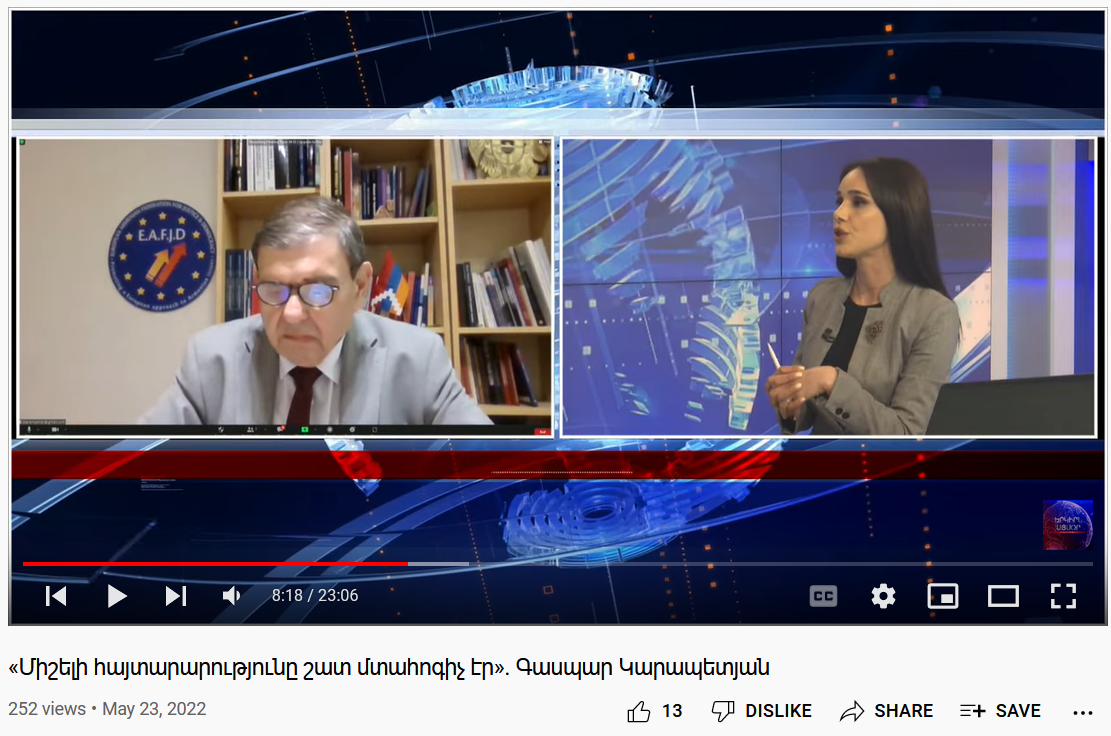
And 1in.am analyzed that a competition is starting between Moscow and Brussels as to who will mediate the negotiation process between Armenia and Azerbaijan.
According to this analysis, the mediation of the EU is beneficial to Armenia, because the border delimitation with the mediation of Russia will be based on political expediency, not legal justification.
Knar Khudoyan
The Media Initiatives Center, “Covering Conflicts: Within the framework of the Strengthening Journalists’ Knowledge and Skills” program, monitors the coverage of the Nagorno-Karabakh conflict in 15 media outlets. The list includes both terrestrial and online media outlets, which have a stable audience and cover the entire spectrum of political analysis from the point of view of content. The following mass media are being considered: Public Television, Channel 5, Yekir Media, Shant TV, Civilnet, Hetq, Armtimes, Aliq Media, Factor, Lragir, 1in, News, 168, and Aysor. Monitoring results are published twice a month in the form of articles.
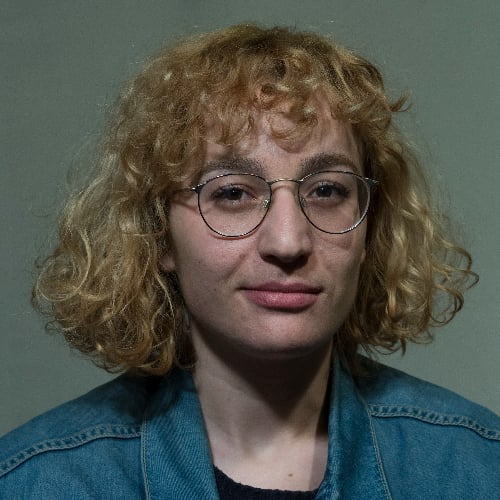

Add new comment
Comments by Media.am readers become public after moderation. We urge our readers not to leave anonymous comments. It’s always nice to know with whom one is speaking.
We do not publish comments that contain profanities, non-normative lexicon, personal attacks or threats. We do not publish comments that spread hate.